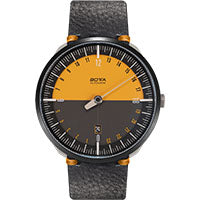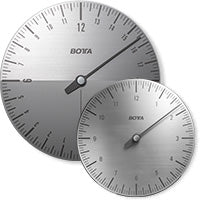"The most successful people are not those who have made the least, but those who have made the most mistakes.
At least that's my own experience.
With this thesis, I consciously go on confrontation with the dogma of our society, in which mistakes are something exclusively negative, and are often even used as a synonym for mistakes and failures.
We feel attacked, insecure, in any case negatively affected.
Hardly anyone would say: "Oh - you have made a big mistake! Congratulations, you now have the chance to learn on a grand scale".
In many cases, however, this would actually be the far better attitude towards our "wrong decisions". Because a mistake that we deal with constructively actually offers the chance to learn something new and to do better in the future.
Before doing so, however, everyone should first clarify for themselves whether a decision or action that someone else classifies as a mistake is in fact a mistake or a mistaken action for them, or whether it is only evaluated in this way by their counterpart (subjectivity of the judgement).
The following three steps are decisive for a positive use of errors:
1. recognize and evaluate the error as such (cognition)
2. admit it and take responsibility for it (understanding)
3. derive a consequence and change the behaviour accordingly (optimization)
With these steps, we initiate a process of improvement, which generally also brings positive results. Not every single change or course correction immediately proves to be an advantage or progress, but in total it leads relatively certainly to positive changes. This process is then called "development" - the results of the whole process are called "experience".
The success of a society is certainly not based on the fact that its actors make as few mistakes as possible, but rather on the fact that it produces creative, proactive personalities who perform exceptionally well. This inevitably includes wrong decisions and wrong actions."The biggest mistake you can make in life is to always be afraid of making a mistake," says Dietrich Bonhoefer quite aptly.
Indeed, the fear of making mistakes slows down our activities and thus reduces our potential for success.The "error preventers" are generally not the most successful people.
On the other hand, it is often the active people who dare to do something and who allow mistakes to happen that are successful.
Of course not every mistake is good and beneficial. And, of course, there are also bad mistakes that are actually better avoided - no question. Here, we rather mean the small and medium-sized mistakes that do not completely throw us off track. Because it is particular these that can trigger positive corrections.
Unfortunately, our educational system is a "good negative example" of this.
Here, mistakes are very often the determining criterion for the evaluation of our children.
As a rule, pupils are evaluated according to their weaknesses and deficits: the more mistakes, the worse the grade, the worse the pupil, the more worthless the person. Special abilities and talents usually do not play a major role in school - they tend to interfere with the "regular routine".
The absurdity of our schools even goes that far that a student gets a worse grade in a subject like physics or biology because his (spelling) "error quotient" is too high.
Error avoidance is obviously the top priority here.
They often carry a lifelong inhibiting fear or even an inferiority complex with them because their social environment has constantly pointed out their mistakes and far too little about their strengths and abilities.
Thus, it is no surprise that in the course of our development we consistently build up an aversion to mistakes, which then often accompanies us throughout our lives.
The later an experience or mistake is made, the more expensive and embarrassing it usually turns out to be.
"It is a great advantage in life to make the mistakes from which one can learn as early as possible." Winston Churchill puts it quite aptly.
In the end, everyone has strengths and weaknesses. Depending on what you concentrate on, one or the other develops more.
In any case, the omnipresent "error-searching" and "error-overvaluation" slows down meaningful progress. By the way, this is true for the small (individual) as well as the big (economy).
My recommendation:
1. make as many experiences as possible (with calculable risk) as early as possible and accept mistakes.
2. evaluate the results of your actions impartially and optimize your future behavior accordingly.
3. then start new experiences with courage, curiosity and confidence.
Sounds like "evolution". And that is exactly what it is. Nature's recipe for success, proven since time immemorial. It is extremely eager to experiment and has no fear of making mistakes.
Big mistakes there immediately lead to "elimination". Small mistakes or deviations from the norm (mutations), on the other hand, are the engine of further development.
Nature would also never think of using its energy to undo a mistake.
It is consistently solution-oriented and future-oriented.
For it, mistakes are not a problem but a tool.
It is better to orientate yourself towards nature than towards transitory social norms.
Success will prove that you are right.
Very much. In the past 32 years of our company's history, we have been active in an unusually wide range of fields and have naturally made a number of mistakes. But we have learned a lot from them and have continuously gained experience.
This now benefits our customers in product design and, of course, our wristwatches, which are rightly regarded as very mature and durable.
Of course, we do not run out of mistakes either, after all we are developing ourselves further every day. However, we deal with them calmly and constructively.
32 years of error experience is also 32 years of improvement.










